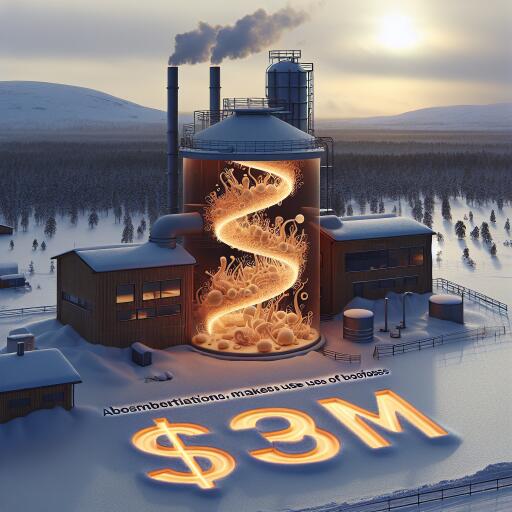Biomass Fermentation Space Heats Up as Enifer Raises $39m to Scale Mycoprotein Plant in Finland
The Finnish startup Enifer has successfully secured €36 million ($39.1 million) in funding, combining debt and equity, to initiate the construction of a large-scale facility dedicated to cultivating mycoprotein sources. Leveraging a fungal strain initially commercialized as animal feed five decades ago, Enifer’s venture marks a significant leap towards sustainable food production alternatives.
The funding ensemble consists of a €15 million ($16.2 million) Series B equity round spearheaded by the Finnish Taaleri Bioindustry Fund I, complemented by contributions from Nordic Foodtech VC, Voima Ventures, and the dairy major Valio. In addition, Enifer has attracted a €7 million ($7.6 million) junior loan from the Finnish Climate Fund, a €2 million ($2.2 million) climate and environmental loan from Finnvera, and a notable €12 million ($13 million) grant from Business Finland.
Enifer’s emergence is amid the burgeoning biomass fermentation industry, where microbes are cultivated in sugary solutions within vast steel bioreactors, highlighting a divergence from precision fermentation that employs microbes as mini-factories for producing high-value components like enzymes. The field boasts a variety of players including Quorn, ENOUGH Foods, Infinite Roots, and many others globally who are exploring both solid-state and biomass fermentation to create sustainable food alternatives.
Intending an initial focus on pet food and aquaculture, Enifer’s product—a protein- and fiber-rich powder distinguished by its neutral taste and color—aims to substitute and complement existing protein sources in various applications. With an eye towards novel food approval in Europe, the Finnish startup is paving the way for its mycoprotein’s inclusion in meat and dairy alternatives, snack bars, and beyond.
The ingredient, sourced from the fungal strain Paecilomyces variotii KCL-24 (branded ‘PEKILO’), revives a commercial production technique employed between 1975 and 1991. Enifer, however, has refreshed the process to accommodate a wider array of feedstocks, thereby enhancing sustainability and efficiency.
The strategic location of Enifer’s upcoming plant at a sugar refinery in Kirkkonummi, Finland, facilitates the use of molasses among other raw materials, enabling a scalable and cost-effective production model. This venture is strengthened by partnerships with notable industry players, indicating a robust market entry and widespread application of the PEKILO protein.
With anticipated regulatory approvals and the transition towards human food applications by 2028, Enifer is setting the stage for a significant shift in sustainable protein production. This initiative not only reinvigorates a proven process but also aligns with the growing demand for alternative protein sources in the face of environmental challenges.
The revival of the PEKILO operation draws on its historical commercial success, strategizing around higher margin markets to ensure profitability and sustainability. Enifer’s exclusive rights to the strain, coupled with its non-GMO status, position it favorably in regulatory discussions and market acceptance, further de-risking the venture for investors.
Despite the competitive landscape, Enifer differentiates itself through its use of side stream raw materials and a business-to-business model, catering to a vast spectrum of applications beyond meat alternatives. As the industry moves towards more sustainable and versatile protein sources, Enifer’s innovative approach signifies a promising advancement in the biomass fermentation space.
The startup’s efforts resonate with the broader industry’s shift towards sustainability, leveraging the environmental benefits of mycoprotein to meet the demands of various sectors, including aquaculture and pet food. The simplicity and efficiency of Enifer’s downstream process additionally underscore the potential of biomass fermentation as a key player in the future of food production.
As Enifer progresses towards the operational phase of its facility, the implications for the alternative protein market, sustainability practices, and global food security are profound. This significant investment not only epitomizes confidence in Enifer’s groundbreaking process but also illuminates the path for innovation in sustainable food production globally.
